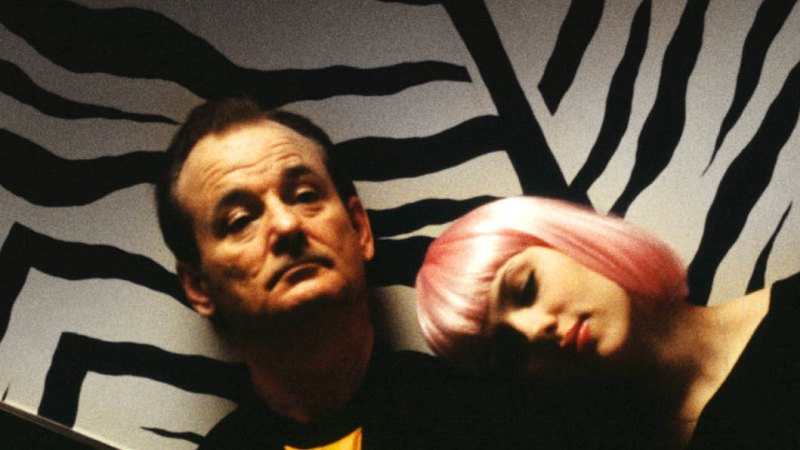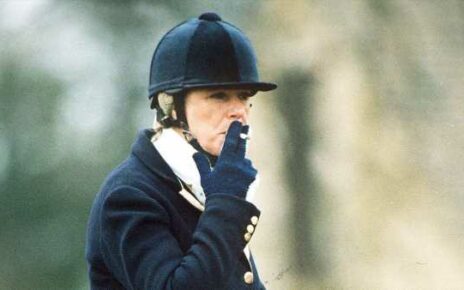Save articles for later
Add articles to your saved list and come back to them any time.
There’s a quote I’ve always loved from Lost in Translation, writer-director Sofia Coppola’s story of two lost souls in Tokyo, which just celebrated 20 years since its original release.
It comes towards the end of the film, when Scarlett Johansson’s character Charlotte and Bill Murray’s Bob have already connected, already spent a week or so together in the Japanese capital exploring its restaurants and nightlife and hanging out in the hotel bar.
Bill Murray was 52 when this film was shot; Scarlett Johansson was 17.
“Let’s never come here again,” Charlotte says, “because it would never be as much fun.”
I think about that line a lot. Should you go back to places you’ve loved? Should you try to recreate travel experiences? Because without the same people, without the same circumstances, you’re surely doomed to fail. Should you just move on?
Lost in Translation is about people trying to move on, or at least move forward. It’s about drifting through life without considering what you’re doing. It’s about being a foreigner in a foreign place. It’s about attraction, and connection. It’s about Tokyo.
I rewatched Lost in Translation a few nights ago, to mark its 20th birthday – something that can be a little dangerous. Some movies don’t age so well. If you ever saw the film Human Traffic (set in the Cardiff, Wales club scene during the late ’90s) and enjoyed it, I would implore you to never watch a single scene ever again.
Despite problematic elements, there’s still much of Lost in Translation that rings true.
As someone who loves travel though, and loves Japan, Lost in Translation is always an easy sell to me. It’s one of the great travel movies. All these locations I love, these experiences I recognise.
And there’s still so much of Lost in Translation that rings true, that captures the experience not just of being in a foreign place at a crossroads in your life – where the setting, somewhere huge and yet anonymous like Tokyo, can make you feel even further adrift – but of visiting Tokyo itself.
This film has been criticised for indulging in cliché, but every experience Charlotte and Bob have in Tokyo, every single thing they see, I have experienced or seen there as well. Walking wide-eyed through a blaring arcade parlour; flipping on the hotel TV and finding some bizarre, random game show; singing in a karaoke booth at 3am; standing next to someone on the subway and realising they’re reading hardcore anime porn … all those things have happened to me.
This film is an outsider’s view of Japan, but I don’t think that’s necessarily a bad thing. There’s value in having your own experience as a foreigner reflected back at you.
I love watching Japanese productions that shed light on this country from the inside, but I also enjoy seeing the quirks and frustrations that only first-time visitors would understand. Yes, the experiences you see in this movie aren’t exactly original, but they’re the things that tend to happen when you have no idea what else is out there and you stick to a well-worn tourist path.
Also believable: the weary disdain that Murray’s character has for any of the Japanese characters in the film. I’ve seen the way some foreigners act in Japan, the patronising treatment of local people, the failure to engage in any of the cultural niceties or norms. That’s real, even if it’s hard to watch.
Some parts of Lost in Translation, however, haven’t aged so well. Like, ah, the ages. Bill Murray was 52 when this film was shot; Scarlett Johansson was 17. His character is a movie star; hers is a jobless college graduate. There’s a huge imbalance that’s nothing short of creepy, and it’s impossible to watch now without being grossed out by any hint of attraction.
Many of the travel elements don’t look so good these days, either. I used to think this film so perfectly captured Tokyo, and the experience of being in Tokyo, but watching it now, you really wince at some of the lazy inaccuracies.
Multiple Japanese people in Lost in Translation are either abrupt or outright rude to Bill Murray’s film-star character. That’s so completely jarring with any experience I have had in Japan, where local people are without fail deferential and polite.
In one of the opening scenes, Murray’s group of handlers from the Suntory whisky company shove business cards at him with one hand. That would just never happen. These Japanese characters essentially just act like Americans with different accents; no effort has been made by the filmmakers to understand Japan or reflect its culture in the movie’s local characters.
Other small moments jar, too. Murray keeps opening and closing his own doors when he gets in and out of taxis – if you know Tokyo, you know they’re automatic, and touching them is frowned upon. You do it once, but you don’t do it again. At a restaurant, Murray is served a hideous beer with the tiniest bubble of froth on top. Again, not going to happen.
A Japanese friend of Charlotte’s also trashes a bar and their group has to make a run for it, throwing glass bottles on the street as the bar owner shoots at them with an airsoft gun, which is so utterly unbelievable. Again, it’s an American’s idea of the way Japanese people would act.
I still like Lost in Translation. But, I have to face up to the idea that I don’t love it any more. It’s too patronising, too lazy. Too creepy.
Ironically, Scarlett Johansson’s character was right. We probably shouldn’t have come back here, because it can never be as much fun.
Get exclusive travel deals delivered straight to your inbox. Sign up now.
Most viewed on Traveller
From our partners
Source: Read Full Article




